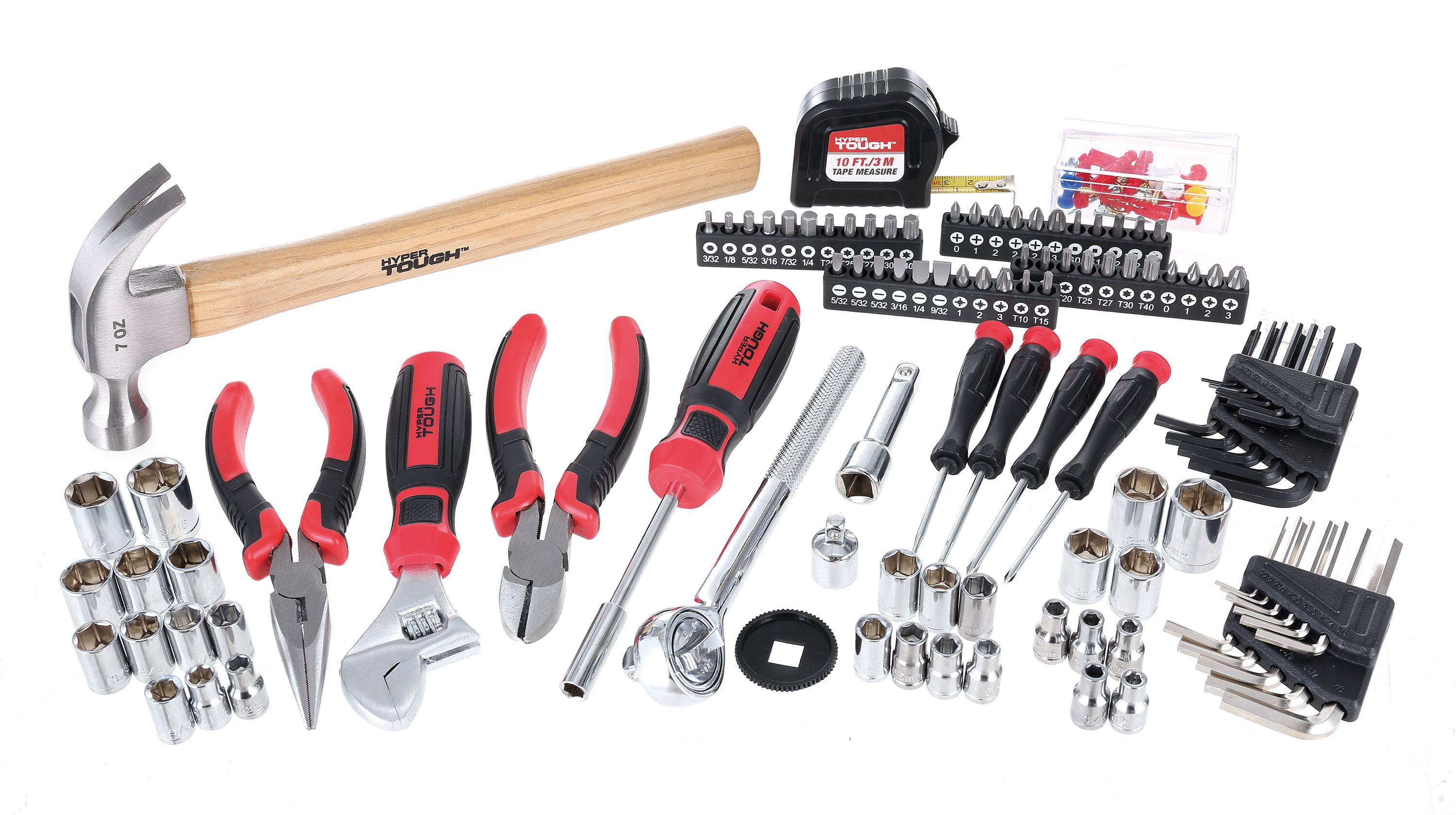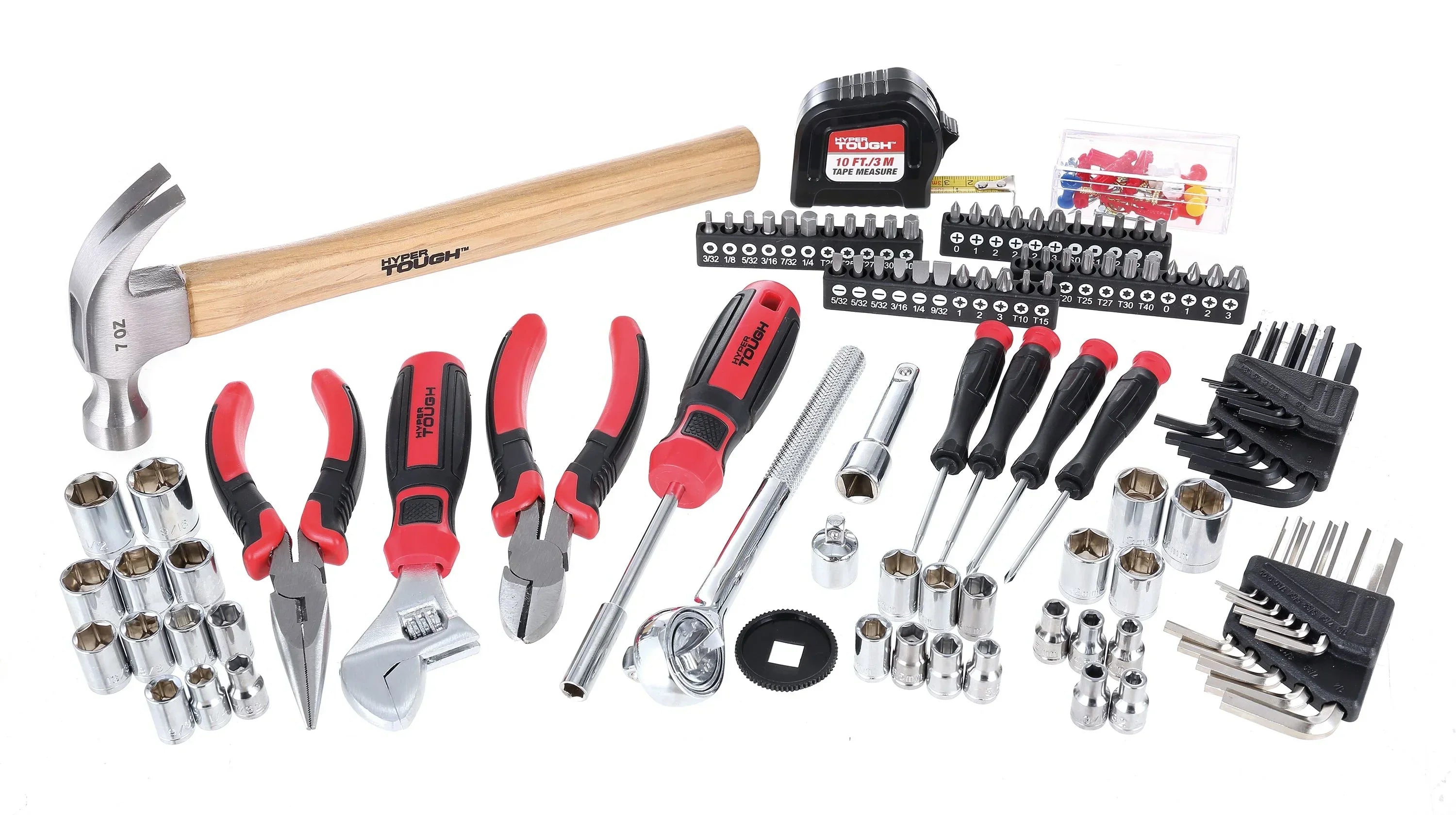Multi-Purpose Tool Kits for Home Repairs
Multi-Purpose Tool Kits for Home Repairs

A well-stocked tool kit is every homeowner’s secret weapon. Whether you're fixing a leaky faucet, hanging a shelf, or tackling a weekend DIY project, a multi-purpose tool kit saves time, stress, and trips to the hardware store. The right kit includes everything from screwdrivers and hammers to utility knives and tape measures—all in one organized case.
Hardware Tools – Shop Screwdrivers, Hammers, Chisels, Hacksaws & More
Essential Tools Every Home Kit Should Include
Your toolkit should cover the basics without overwhelming you. Here’s what to look for:
| Tool | Purpose |
|---|---|
| Claw Hammer | Driving and removing nails |
| Screwdrivers (Flat & Phillips) | Tightening and loosening screws |
| Pliers | Gripping, bending, and cutting wires |
| Adjustable Wrench | Turning nuts and bolts of various sizes |
| Tape Measure | Accurate measurements for any project |
| Utility Knife | Cutting packaging, carpet, or drywall |
| Level | Ensuring straight lines and balanced installs |
| Assorted Hardware | Nails, screws, anchors for quick fixes |
| Flashlight | Lighting up dark corners during repairs |
| Electrical Tape | Insulating wires and minor electrical fixes |
These tools handle 90% of common household tasks.
Benefits of Owning a Multi-Purpose Tool Kit
Why buy a full kit instead of individual tools?
- Convenience: Everything’s in one place
- Cost savings: Bundled kits are cheaper than buying tools separately
- Preparedness: Ready for unexpected repairs
- Efficiency: No more hunting for missing tools
- Confidence: Tackle DIY projects with ease
A good kit turns “I’ll fix it later” into “I’ve got this.”
How to Choose the Right Tool Kit
Not all tool kits are created equal. Match your kit to your skill level and home needs:
- Beginner: Basic kits with essential hand tools
- Intermediate: Kits with added specialty tools (e.g., wire cutters, hex keys)
- Advanced: Comprehensive sets for plumbing, electrical, or carpentry tasks
Consider:
- How often you do repairs
- What types of projects you tackle
- How much storage space you have
Choose a kit that fits your lifestyle—not just your toolbox.
Top Features to Look For
When comparing tool kits, keep an eye out for:
- Durable Materials: Chrome vanadium steel resists rust and wear
- Ergonomic Handles: Comfortable grips reduce hand fatigue
- Compact Storage: Hard cases or roll-up bags keep tools organized
- Clear Labeling: Easy-to-read markings help you grab the right tool fast
- Warranty Coverage: Trusted brands often offer guarantees
Quality tools make every job easier—and safer.
Best Brands for Home Tool Kits
Stick with brands known for reliability:
| Brand | Strengths |
|---|---|
| DEWALT | Heavy-duty tools, great for serious DIYers |
| Craftsman | Affordable and durable for everyday use |
| Stanley | Ergonomic designs and solid warranties |
| Apollo Tools | Compact kits ideal for apartments and condos |
| TACKLIFE | Budget-friendly with wide tool variety |
These brands offer kits for every budget and skill level.
Maintenance Tips for Long-Lasting Tools
Keep your tools in top shape with these habits:
- Clean after use: Wipe off dirt, oil, and moisture
- Inspect regularly: Check for rust, wear, or loose parts
- Lubricate moving parts: Apply oil to hinges and joints
- Store properly: Keep tools dry and organized in a toolbox or drawer
A little care goes a long way toward tool longevity.
Safety Tips When Using Hand Tools
Stay safe while you work:
- Wear safety glasses to protect your eyes
- Keep your workspace clean and clutter-free
- Use the right tool for the job—don’t improvise
- Check tools for damage before use
- Store sharp or heavy tools out of children’s reach
Safety first means fewer accidents and better results.
Budget-Friendly Options for Homeowners
You don’t need to spend a fortune to get started. Look for:
- Starter kits with 30–50 pieces
- Compact sets for small spaces
- Seasonal sales or bundle deals
- Refurbished tools from trusted retailers
Great tools don’t have to break the bank.
Creative Uses for Common Tools
Your toolkit isn’t just for repairs:
- Use pliers to pinch off garden stems
- Open paint cans with a flathead screwdriver
- Scrape stickers from glass with a utility knife
- Use a tape measure as a straight edge for crafts
- Hammer claw = carpet tack remover
Think outside the toolbox—your tools are more versatile than you think.
Storing and Organizing Your Tool Kit
Good organization saves time and protects your gear:
- Use foam inserts or dividers to separate tools
- Hang pegboards for easy access in garages or workshops
- Label drawers or bins for quick identification
- Keep tools dry and away from corrosive materials
A tidy toolkit is a productive toolkit.
Frequently Asked Questions
Can I bring a tool kit on a plane?
Most tools aren’t allowed in carry-on luggage. Check airline rules and pack sharp items in checked baggage.
Can kids use tools safely?
Yes—with supervision and age-appropriate tools. Teach proper handling and safety from the start.
Are there eco-friendly tool kits?
Some kits use recycled steel or bamboo handles. Look for sustainability certifications.
How do I recycle old tools?
Take them to a local scrap metal facility or check for tool recycling programs in your area.
Final Thoughts
A multi-purpose tool kit is more than a box of gadgets—it’s your home’s first line of defense. With the right set, you’ll fix, build, and improve with confidence. Choose smart, maintain well, and let your toolkit turn everyday problems into satisfying solutions.



